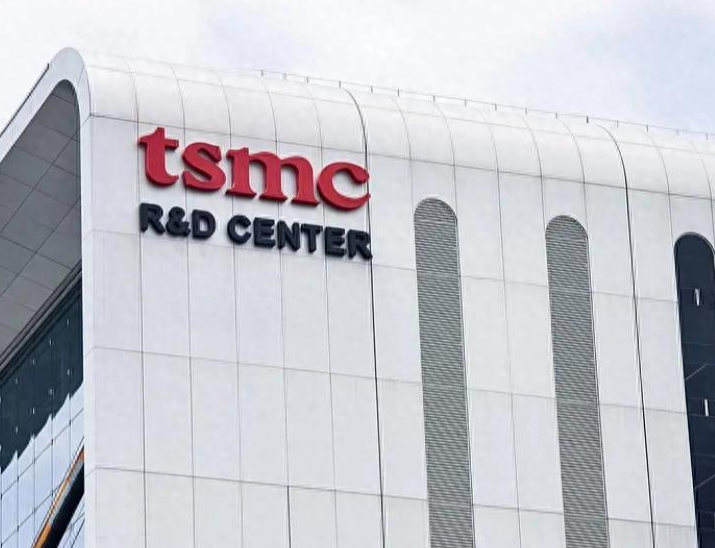30% Higher! The 4nm Chip from TSMC in the U.S.
Advertisements
In a landmark development, TSMC, the world’s largest semiconductor foundry, has commenced production at its first 4nm plant on American soil, located in Arizona. This significant step marks a pivotal moment in the history of semiconductor manufacturing in the United States, as noted by U.S. Commerce Secretary Gina Raimondo, who emphasized that it is the first time 4nm chips have been produced domestically. During a recent announcement, she stated, "This is a big deal—it's something that has never happened in our nation's history. Many said it was impossible." This achievement has quietly culminated over the recent weeks.
The decision for TSMC to expand its operations into the U.S. was not made lightly. While the U.S. holds a dominant position in chip design, it has been significantly lagging in actual manufacturing capabilities. TSMC has been invited to bridge this gap by bringing its cutting-edge fabrication capabilities to American soil.
In 2019, efforts by the U.S. government began to persuade TSMC to construct a large-scale factory in the country. By May 2020, former Assistant Secretary of State Keith Krach announced that TSMC agreed to a whopping $12 billion facility in Arizona. This decision signified a major commitment to American manufacturing and represented a shallow watershed in U.S.-Taiwan relations in the tech industry.
The rationale behind TSMC’s U.S. expansion involves several critical factors, including economic effectiveness, cost advantages, and a well-established workforce and supply chain. This effort to build an advanced semiconductor facility would resonate throughout the industry, creating thousands of jobs directly and indirectly along the semiconductor production chain.
Initially, TSMC's investment was planned for a 5nm plant, expected to begin production in 2024. However, with additional support from the U.S. government, the project has evolved to focus on producing 4nm chips, which are at the forefront of current technology. The first facility, known as Fab 21, faced delays and is now anticipated to begin production in mid-2025, dramatically altering the timeline originally set.

This 4nm chip announcement is indeed a direct result of the advancements being put into action at Fab 21. The facility is utilizing TSMC’s state-of-the-art 5nm technology with a projected capacity of 20,000 wafers monthly. This plant's operation will not only generate numerous high-tech jobs in Arizona but will also amplify the; semiconductor ecosystem significantly.
However, despite the promise of innovation, TSMC faces impending challenges related to costs. Reports indicate that the costs of producing chips in the U.S. could surge by 30% or more. Factors such as tariffs and transportation of raw materials are expected to impact production expenses severely, meaning that the consumer prices of products utilizing these new chips will inevitably be higher. Such financial pressures loom over TSMC's ability to offer competitive pricing while maintaining production standards.
Looking further ahead, TSMC has ambitious plans to establish a second factory in the U.S., initially set to utilize the 3nm manufacturing process. Yet, as technologies evolve, discussions have already shifted towards focusing on a more advanced 2nm chip process instead. Internal communications suggest that initial manufacturing for these chips may start in 2028, indicating a significant shift in expectations for U.S.-based operations in next-generation semiconductor production.
This second facility's anticipated announcements span reports that align with previously established projects like Fab 21, indicating a robust and future-facing strategy for semiconductor fabrication. Amidst this backdrop, domestic industry giants such as Apple, NVIDIA, and AMD await the advent of these advanced 4nm chips, eager to leverage fresh technological innovations for competitive advantages. Their proximity to TSMC's production capabilities in the U.S. could redefine the market dynamics entirely.
TSMC’s expansion isn't limited to American soil alone; there are key infrastructural developments underway in Taiwan as well. The Hsinchu Baoshan and Kaohsiung regions are set for massive expansions in their 2nm fabrication capacities. The company aims to introduce groundbreaking GAA transistor architectures to reduce power consumption, increase performance, and enhance transistor density, marking a monumental leap in technology.
As plans for additional fabs crystallize, TSMC is poised to sustain its competitive edge in semiconductor manufacturing, reflected in the strategic choices made about where to produce these advanced chips. The evolution of TSMC's production capabilities illustrates not only the company's resilience but also the critical importance of semiconductor production as a linchpin of modern technology and an area of increasing geopolitical competition.
With the increasing complexity of chip manufacturing and the rising need for local production capabilities, TSMC's expansion into the U.S. potentially signals a broader trend. For the foreseeable future, the relationship between the U.S. and Taiwan in the semiconductor space will attract continued scrutiny and reshaping, with implications for global trade, technological advancements, and international cooperation in high-tech industries.
TSMC’s overarching investment in the United States is projected to surpass $65 billion and aims to create approximately 6,000 direct jobs with countless indirect positions. Furthermore, the infusion of funds towards workforce development in semiconductor fields reflects a commitment by both TSMC and the U.S government to elevate domestic capabilities in this crucial high-tech sector.